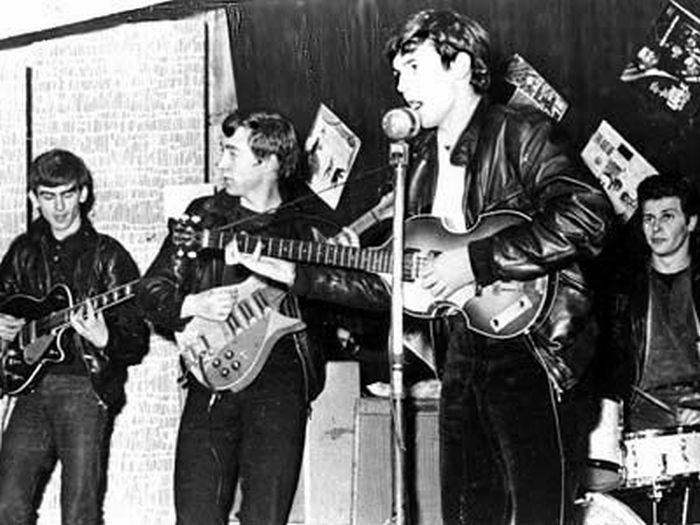|
|
History: Early Years Of The Beatles
|
Engineer Glyn Johns worked for months assembling various iterations of a Get Back album, while the band turned to other concerns. Conflict arose regarding the appointment of a financial adviser, the need for which had become evident without Epstein to manage business affairs. Lennon, Harrison and Starr favoured Allen Klein, who had negotiated contracts for The Rolling Stones and other UK bands during the British Invasion. McCartney wanted John Eastman, brother of Linda Eastman, whom McCartney married on 12 March (eight days before Lennon and Ono wed). Agreement could not be reached, so both were appointed, but further conflict ensued and financial opportunities were lost.
Martin was surprised when McCartney contacted him and asked him to produce another album, as the Get Back sessions had been "a miserable experience" and he had "thought it was the end of the road for all of us ... they were becoming unpleasant people—to themselves as well as to other people." Recording sessions for Abbey Road began in late February. Lennon rejected Martin's proposed format of a "continuously moving piece of music", and wanted his own and McCartney's songs to occupy separate sides of the album. The eventual format, with individually composed songs on the first side and the second largely comprising a medley, was McCartney's suggested compromise. On 4 July, while work on the album was in progress, the first solo single by a Beatles member was released: Lennon's "Give Peace a Chance", credited to the Plastic Ono Band. The completion of the Abbey Road track "I Want You (She's So Heavy)" on 20 August 1969 was the last time all four Beatles were together in the same studio. Lennon announced his departure to the rest of the group on 20 September, but agreed that no public announcement would be made until various legal matters were resolved.
Released six days after Lennon's declaration, Abbey Road sold four million copies within two months and topped the UK chart for eleven weeks. Its second track, the ballad "Something", was also issued as a single—the first and only song by Harrison to appear as a Beatles A-side. Abbey Road received mixed reviews, although the medley met with general acclaim. Allmusic considers it "a fitting swan song for the group" containing "some of the greatest harmonies to be heard on any rock record". MacDonald calls it "erratic and often hollow": "Had it not been for McCartney's input as designer of the Long Medley ... Abbey Road would lack the semblance of unity and coherence that makes it appear better than it is." Martin singled it out as his personal favourite of all the band's albums; Lennon said it was "competent" but had "no life in it", calling "Maxwell's Silver Hammer" "more of Paul's granny music". Recording engineer Emerick noted that the replacement of the studio's valve mixing console with a transistorized one yielded a less punchy sound, leaving the group frustrated at the thinner tone and lack of impact and contributing to its "kinder, gentler" feel relative to their previous albums.
For the still uncompleted Get Back album, the final song, Harrison's "I Me Mine", was recorded on 3 January 1970. Lennon, in Denmark at the time, did not participate. To complete the album, now retitled Let It Be, Klein gave the session tapes to American producer Phil Spector in March. Known for his Wall of Sound approach, Spector had recently produced Lennon's solo single "Instant Karma!" In addition to remixing the Get Back material, Spector edited, spliced and overdubbed several of the recordings that had been intended as "live". McCartney was unhappy with Spector's treatment of the material and particularly dissatisfied with the producer's orchestration of "The Long and Winding Road", which involved a choir and thirty-four-piece instrumental ensemble. He unsuccessfully attempted to halt the release of Spector's version. McCartney publicly announced his departure from the band on 10 April, a week before the release of his first, self-titled solo album. Pre-release copies of McCartney's record included a press statement with a self-written interview, explaining the end of the Lennon-McCartney songwriting partnership and his hopes for the future.
|
|









